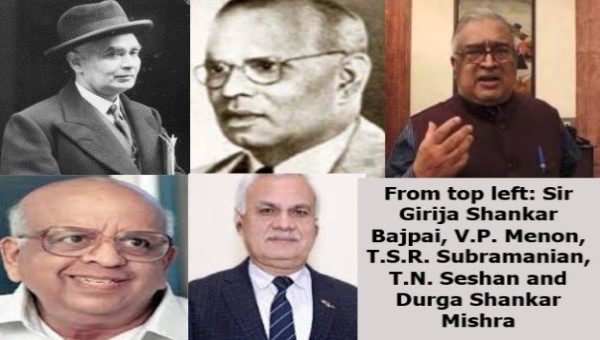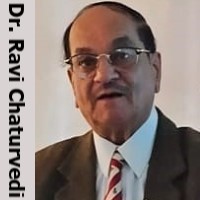The genesis of the civil service system, commonly referred to as bureaucracy, can be traced back to the British colonial era in India. The consolidation of British control over the Indian Government was formalised through the Government of India Act of 1858, marking the commencement of the British Empire’s governance of India through a committee of authorized specialists. In less than a century, a proficient administration emerged, primarily composed of Indians who pledged loyalty to the British Government.
This administrative entity stands as the sine qua non of British Rule in India. Following India’s independence, at a juncture when developing nations sought to establish skilled and competent professional services, India’s top bureaucracy assumed a distinctive and resolute posture. It has since provided, and continues to provide, the nation with autonomy and continuity, remaining steadfast even during periods of political instability and uncertain political control at both national and state levels.
The term “bureaucracy” has its etymological roots in French (signifying “small desk”) and Greek (meaning “to rule”). Essentially, bureaucracy refers to governance based in offices. Max Weber (1864-1920, a German sociologist, stands as one of the first individuals in contemporary times to critically examine bureaucracy, characterizing it as a rational method for organizing a complex organisation.
The role of the state and its bureaucracy in fostering economic, social, and political development is expanding. The bureaucracy actively engages in policy formulation, serving as a communication conduit, an information repository, a group of specialists, and an impartial advisor.
Amidst a plethora of seasoned bureaucrats globally, this discourse focuses on a select few notable Indian bureaucrats due to space constraints. These individuals played pivotal roles in formulating policies and programmes that either immediately or soon benefited the nation. Among the leading lights of the Indian bureaucracy Bajpai, Menon, Subramanian, Seshan and the latest in the ranks Mishra stands out.
Sir Girija Shanker Bajpai, as the principal foreign affairs advisor and the inaugural Secretary General in the Ministry of External Affairs in independent India, demonstrated foresight by warning Prime Minister Nehru about the potential for a Chinese invasion more than a decade before it transpired. Noteworthy is the observation by American diplomat Vincent Sheean in his book “Nehru – The Years of Power,” pointing out a technical error in the handling of the Kashmir issue, underscoring the repercussions of such administrative lapses.
Envoy Sheean wrote in his book Nehru – The Years of Power (1960) that a technical error by the govt. of India led to the Kashmir issue being considered a dispute rather than an act of aggression by Pakistan. The appeal should have been made under Chapter 7 of the UN charter rather than Chapter 6. Country is paying a huge price for such a comedy of error.
V.P. Menon, a highly experienced bureaucrat of pre and post-independent India, played a crucial role in India’s partition and political integration. His adept diplomacy facilitated the merger of princely states into the union of India. Menon’s strategic negotiation skills were particularly evident in dealing with challenging situations, such as the accession of Jodhpur, and his instrumental role in military actions against Junagadh and Hyderabad. The Cabinet had dispatched Menon to obtain the accession of Jammu & Kashmir into India in 1947.
Menon became the envoy to negotiate merger of their states with the Maharajas to the Indian Union. He faced a daunting situation while dealing with the Maharaja of Jodhpur. Menon was present at the meeting between Lord Mountbatten and Hanwant Singh, Maharaja of Jodhpur. It was in this meeting that Hanwant Singh signed the instrument of accession to India. After he had signed and the Viceroy Mountbatten left, only Menon was in the room with him. The Maharaja took out a .22 calibre pistol and pointed it at Menon and said, “’I refuse to take your dictation”. Menon told him that he would be making a very serious mistake by threatening him and would not be able to get the accession abrogated in any case.
In recent years, civil servants T.N. Seshan and T.R.S. Subramanian significantly contributed to the national cause within their respective domains. Seshan’s strict approach addressed malpractices in elections, ensuring fairness and freedom in the electoral process. On the other hand, T.R.S. Subramanian played a pivotal role in civil services reforms, including key contributions during his tenure as Textiles Secretary and Chief Secretary of Uttar Pradesh.
Durga Shanker Mishra, chief secretary of Uttar Pradesh, has recently garnered attention for receiving a third extension. His involvement in critical projects, such as the Central Vista project in Delhi and urban transport initiatives at centre, reflects his commitment to developmental endeavours. The collaboration between Yogi Adityanath and Mishra has earned accolades from The World Bank for their focused approach in executing sector-specific action plans for progress. The overarching goal is to elevate Uttar Pradesh into a trillion-dollar economy and establish it as a vibrant export hub.
The commercial circles commonly assert that Uttar Pradesh not only ranks among the nation’s top states in terms of ‘ease of doing business’ but also prioritizes ‘ease of living.’ Recent achievements of the UP Government include the provision of 2.6 crore toilets, distribution of houses to 54 lakh beneficiaries under the Pradhan Mantri and Mukhyamantri Awas Yojana, and health coverage extended to 6 crore families through the Ayushman Bharat Yojana. Special emphasis is now being placed on environmental protection on a larger scale, showcasing the state government’s commitment to comprehensive development. Kudos to Yogi Adityanath and Durga Shanker Mishra for their commendable efforts in the development of UP through a double engine sarkar!”
See also:
Touching romance of Rohan & Supriya
British MP Sharma’s support to holocaust survivors









